This Friday, a demonstration was held in front of the European Council, organized by human rights and peace activists from around the world, at the Brussels summit, calling on the 27 EU leaders to « take drastic measures » to put an end to the so-called « crimes of aggression committed by the Turkish military intervention in Libya ».
Protesters come from the Libyan, Arab and Kurdish communities in Europe, sounding the alarm on the agreements reached by the Libyan and Turkish governments, and on the Turkish army’s intervention on Libyan territory at the request of Turkish President Recep Tayyip Erdogan.
The European Center for Peace and Conflict Resolution calls on European governments to denounce Turkish aggression and attacks on freedom, to propose to the EU and the UN a no-fly zone in Libya, aimed at preventing any bombing of the people and imposing severe sanctions on Turkey unless it withdraws from Libyan territory.
Over the past few days, the Turkish army has moved to Libya, and Turkey, helping the beleaguered Tripoli government, has emerged in a few months as the key player in the Libyan crisis.
The President of the International Movement for Coexistence and Peace, Nigel Goodrich, said: « As peace activists, we claim to denounce the acts of aggression by Turkey in Libya and the Arab region, » he added, « we denounce the military actions in Libya, denounce the interference in Libya’s internal affairs and violate the principles of sovereignty. »
Nigel Goodrich explained: « We came to say: No. Not to colonize peoples and exploit their internal problems. We are here to denounce what Turkey is doing in Libya to prevent humanitarian disasters. » What is happening in Iraq is the result of Turkey’s external interventions.
On Saturday, 18 July 2020, the 27 Member States of the European Union met in Brussels to find a solution to the Libyan tensions; « Today we met in Brussels on the sidelines of the European Council to discuss the situation in Libya. We share grave concerns about the rising military tensions in that country and the increased risk of regional escalation. We therefore call on all the Libyan parties and their foreign supporters to immediately cease the fighting and to put an end to the ongoing military escalation across the country, » announced President Emanuel Macron, German Chancellor Angela Merkel and Italian Council President Giuseppe Conte. »
« We also call on all foreign actors to end their growing interference and fully respect the arms embargo established by the United Nations Security Council. We take our responsibility and are determined to ensure the full effectiveness of Operation Irini in preventing any escalation on the ground. We are ready to consider the possibility of resorting to sanctions if violations of the embargo at sea, on land or in the air continue and look forward to the proposals that the High Representative of the European Union for Foreign Affairs and Security Policy will make to this end. »
« We support the efforts of the United Nations to secure the signing of a lasting and credible ceasefire agreement in the context of the ongoing negotiations in the 5+5 Committee. At this critical juncture, we also encourage the United Nations to explore all options for reducing tensions, including the possibility of a wide disengagement of forces or possible demilitarization in some regions. « We reaffirm the need for a special representative of the Secretary-General in Libya to be appointed promptly. »
« We remind all Libyan and international parties that a political settlement of the Libyan crisis must be fully inclusive and based on the conclusions of the Berlin Conference. We also recall the need to lift the oil blockade quickly and to ensure a fair and transparent distribution of oil revenues for the benefit of all Libyans. »
Last November, the President of Turkey and the President of the Tripoli Government Fayez al-Sarraj concluded two memorandums of understanding, one on the delimitation of the maritime border and the other on security, authorizing the sending of Turkish troops to Libya. After the signing, Erdoğan began by sending Turkish troops to Libya to support the United Nations-recognized Tripoli-based Government of National Reconciliation.
Turkey supports the Government of the Libyan Agreement, recognized by the United Nations, and has strengthened its military support to Iran against the powerful Libyan Middle East, Marshal Khalifa Haftar, whose forces launched an attack on Tripoli last year.
The military and security agreement signed by Turkey by President Recep Tayyip Erdogan with the government of Tripoli on 27 November 2019 would include a clause on alleged oil drilling off the coast of Cyprus – the northern part of which has been occupied by the Turkish army since 1974 – in disputed border areas with Greece. This agreement would allow Ankara to increase the area of its continental shelf and EEZ by 30 per cent, and could prevent Greece from signing a maritime delimitation agreement with Cyprus, but also with President al-Sisi’s Egypt, which would greatly enhance Turkey’s influence in the development of hydrocarbons in the Eastern Mediterranean.
Abu Jazar, who heads the Brussels International Center for Research and Studies, added: « We came to send a message to the European Union and to the European leaders at their meeting today at this summit of the twenty-seven countries. Against Erdogan’s incursion into Libya. »
Protesters chanted slogans condemning what they called « Turkish violations in the Arab world ».
« As peace activists, we claim to denounce the Turkish aggression in Libya and the Arab region, » said Nigel Godrich, leader of the International Movement for Co-existence and Peace, adding in an interview with euronews: « We condemn the military actions in Libya and denounce the interference in Libya’s internal affairs and violate the principle of sovereignty there. » Noting at the same time that « what Turkey is doing today are purely hostile and colonial interventions to achieve economic ambitions and expansionist objectives in oil-rich Libya ».
He added: « Turkey has for years sought to create conflicts in some of the neighboring countries, and it also supports terrorist groups in the Arab region: in Iraq and Syria and now in Libya as well. »
All the pieces of the geopolitical puzzle are adjusting dangerously. Greece – also a NATO member and Turkey – strongly condemned the agreement, calling it on 20 December 2019 « a violation of international maritime law and the sovereign rights of Greece and other countries ». The Greek government of Prime Minister Kyriakos Mitsotakis announced the expulsion of the Libyan ambassador to Athens and received the logical support of the European Union, as well as of Egypt and Israel.
And the president of the « House of Representatives » now sitting in Benghazi, Aguila Saleh Issa – a close ally of Marshal Haftar who, according to Athens, declared himself resolutely « against this agreement » – was expected in Athens, no doubt to take date. The head of Greek diplomacy, Nikos Dendias, has already made a quick trip on 22 December 2019 by visiting Benghazi in eastern Libya, where he met Marshall Khalifa Haftar, before traveling to Cairo. At the same time, Athens announced that the agreement on the EastMed gas pipeline would be signed with Cyprus and Israel on 2 January 2020.
In Brussels, on January 7, as a matter of urgency, between ministers of European affairs « convinced that there is no military solution to the Libyan crisis, then in Cairo on January 8 with four of them around the head of Egyptian diplomacy Sameh Choukri, diplomatic meetings follow one another to call for an « immediate cessation of hostilities » and condemn Turkey’s interference in Libya with the sending by President Recep Tayyip p Erdogan of Turkish soldiers alongside the Tripoli government of Fayez al-Sarraj, in trouble since the takeover of Sirte by the army of Marshal Haftar, which has started a war for nine months to conquer the Libyan capital so far without success.
Two enemy camps backed by foreign countries that are confronting each other on the one hand by Libyan proxies and calling for a ceasefire for a war that they are stoking in the shadows, as the United Nations and its representative Ghassan Salamé point out, who denounces in a barely contained anger the foreign interference in Libya.
Turkey and, to a lesser extent, Qatar support Prime Minister Sarraj, while the boiling marshal enjoys military support from the United Arab Emirates, Saudi Arabia, and Egypt. A war that brings us back to the time of Constantinople and the Sublime Porte. In domestic trouble, President Erdogan is presenting himself as a new sultan, one that will restore the Ottoman Empire from Istanbul to Cairo, with Libya relinquished in 1912 after a sixteenth-century occupation.
Turkey has been around Tripoli since 2019, and has been supporting the GAN, which it has been providing, more or less secretly, Syrian mercenaries, weapons, ammunition, troop-carrying vehicles, and drones. As early as April 2019, when Marshal Haftar launched his offensive on Tripoli, deliveries accelerated. In August of the same year, a command center, common to the Turkish army and the secret services (MIT), was established in Tripoli.
These points in Libya are part of Turkey’s increasingly aggressive regional posture. Ankara has strengthened its ability to harm the Mediterranean by preventing the exploration of gas by private companies in the disputed areas. Such diplomatic-military activism is in line with the « blue homeland » doctrine devised by NATO-hostile Turkish army generals. It is on them that Erdoğan is building his plans, making his country a regional power capable of vetoing both the Eastern Mediterranean and the Black Sea and the Aegean Sea. In Libya, « the land where our ancestors marked history », Erdogan does not hesitate to summon the memory of the Ottoman Empire to justify his current pretensions.
By standing by the Libyan Prime Minister’s National Accord Government (GAN), Turkish President Recep Tayyip Erdogan, Faiez Sarraj, reversed the course of the war around Tripoli, where the attacking forces of dissident Marshal Khalifa Haftar, backed by the Russian mercenaries of the Wagner Group, were inexorably nibbling from the ground. Turkish support – including air support – to the Sarraj NAG was so effective that Haftar and his allies had to retreat to their strongholds at the borders of Tripolitania (west) and Cyrenaica (east).
Since then, Russians have entered the game with mercenaries from the privately owned military company Wagner, which belongs to a close relative of Vladimir Putin. Many are engaged in Haftar’s forces. After Syria, Putin seeks to expand his influence in the Muslim world, including Iran, even if he faces his other regional ally, Turkey, which now supports the other side, Tripoli. However, Ankara and Moscow took precautions: They did not deploy soldiers from their respective regular army on the Tripoli front, but mercenaries or militiamen without uniforms. Allies in Syria, but « enemies » in Libya, the two countries do not lose sight of business.
Diverged into chaos since the fall of Muammar el-Qaddafi’s regime in 2011, Libya has been plagued by power struggles and two authorities are now fighting over power: the GNA supported by the UN and a government and a parliament in the east of Libya acquired by Marshal Haftar.
Turkish President Recep Tayyip Erdogan has tried to demonstrate, at the national and international political level, his status as a dictator, or even better determined the new sultal of the modern Ottoman Empire, in order to preserve the possibility of remaining in state power, and even to make extremely strong decisions. controversial in terms of national and international politics.
After many erroneous decisions attributed by force and arrogance, Recep Tayyip Erdogan managed to attract international attention once again, but this time in terms of UNESCO’s heritage, creating an international controversy and even imbalances the level of worship by demonstrating racism and discrimination. announcing the decision to make the Hagia Sophia Cathedral a place of prayer for Muslims.
Since 2003 and Erdoğan’s rise to power, activities related to Islam have multiplied within the former basilica, including reading the Qur’an or collective prayers on the square of the monument.
On 2 July, the Turkish Council of State considered the complaint of a Muslim association that was campaigning for the conversion of the building into a mosque. On Friday, July 10, 2020, the institution issued its decision, granting access to this request and quashing the 1934 government decision granting Hagia Sophia museum status. The Court explained that in the acts of ownership on behalf of the Mehmet Fatih Foundation, named after the Ottoman Sultan who conquered Constantinople in the 15th century, Hagia Sophia was listed as a mosque and that this qualification could not be changed.
Originally a place of Christian worship, then a Muslim since the Ottoman troops took over Constantinople in 1453, Hagia Sophia was transformed into a museum under the direction of Mustafa Kemal Atatürk, founder of the Republic of Turkey. On Friday, July 10, 2020, President Recep Tayyip Erdoğan announced his opening to Muslim prayers. « It has been decided that Hagia Sophia will be placed under the administration of Diyanet (the Authority of Religious Affairs) and will be reopened to prayers, » the leader said on Twitter.
Although Turkey gained its independence and republic status in 1935, thanks to Mustafa Kemal Atatürk, after 85 years of independence, the Turkish state is headed to the empire after Turkish President Recep Tayyip Erdoğan’s decision, through his more than 17-year-old policy in power, using different methods to rebuild Ottoman territory year, through various agreements and subtleties, or even through the force and involvement of terrorists.
In just 17 years in power, Erdoğan succeeded in imposing his regime, but also in attracting the attention of international diplomacy and riots between Turkish and Kurdish civilians, intervening in conflicts with Syria, Iran, or Iraq, or intervening on Libyan territory after the agreement reached between the government (GNA) and Turkey, which the government made Turkish government on 2 January 2020 to deploy military troops on Libyan territory, a solution to use the Libyan economy for the benefit of the Turkish state. at the same time rebuilding the borders of the former Ottoman Empire.
Views: 2


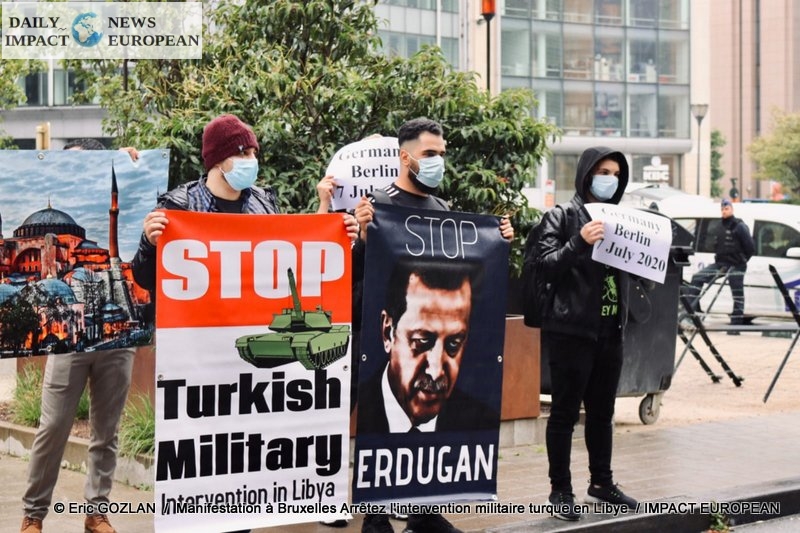
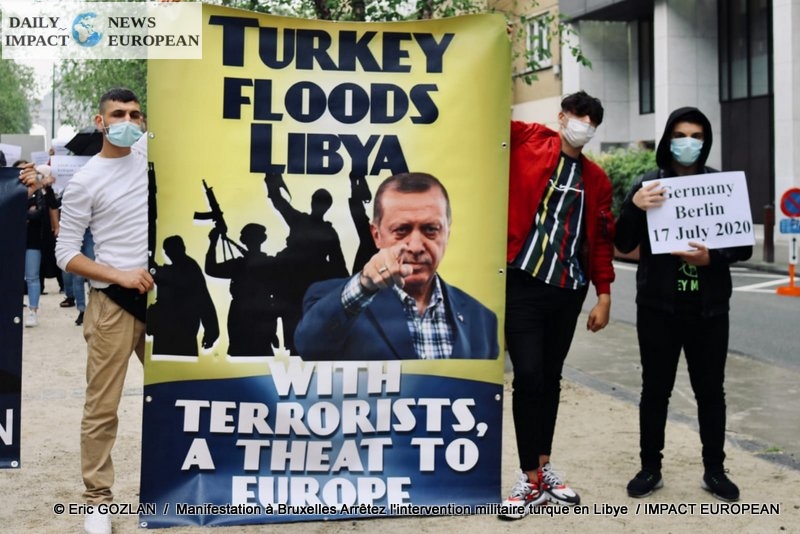
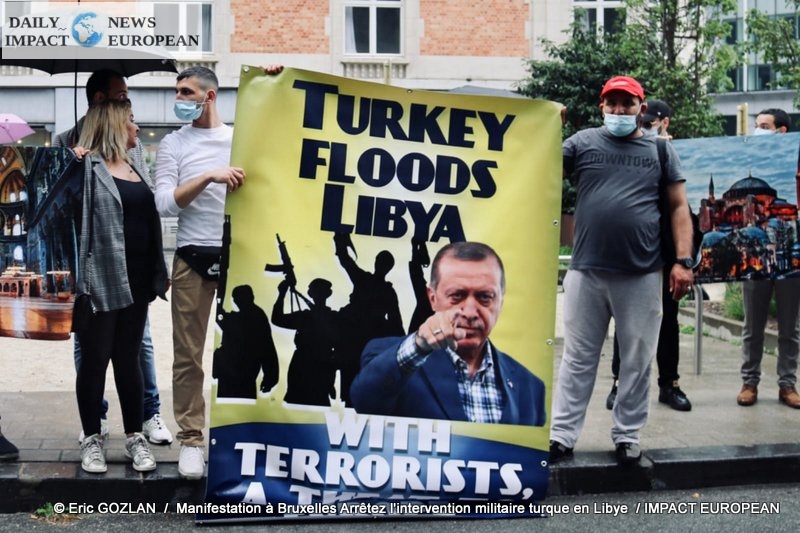
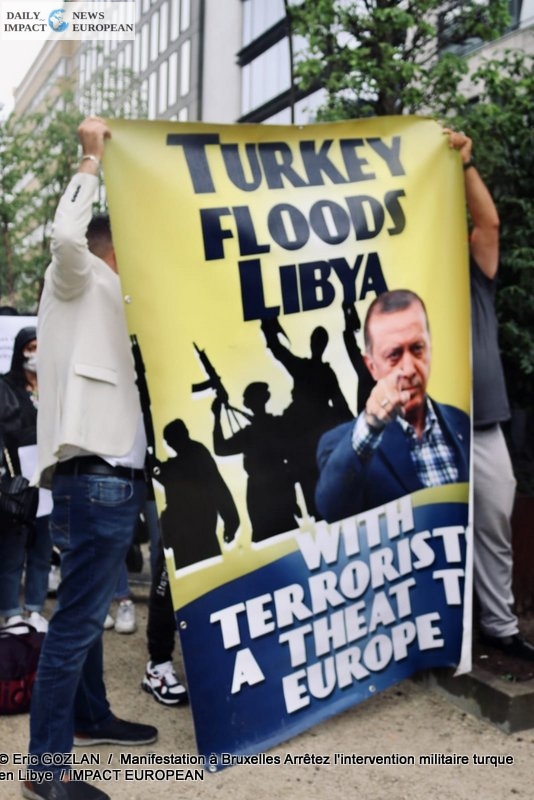
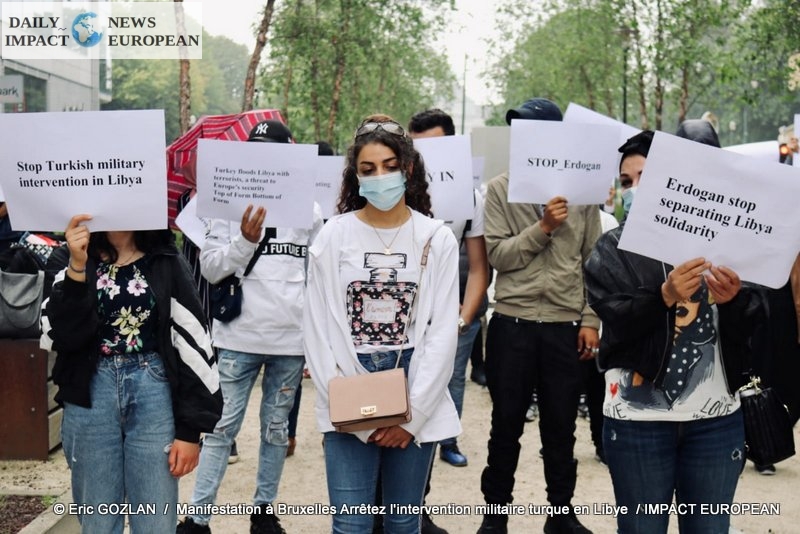
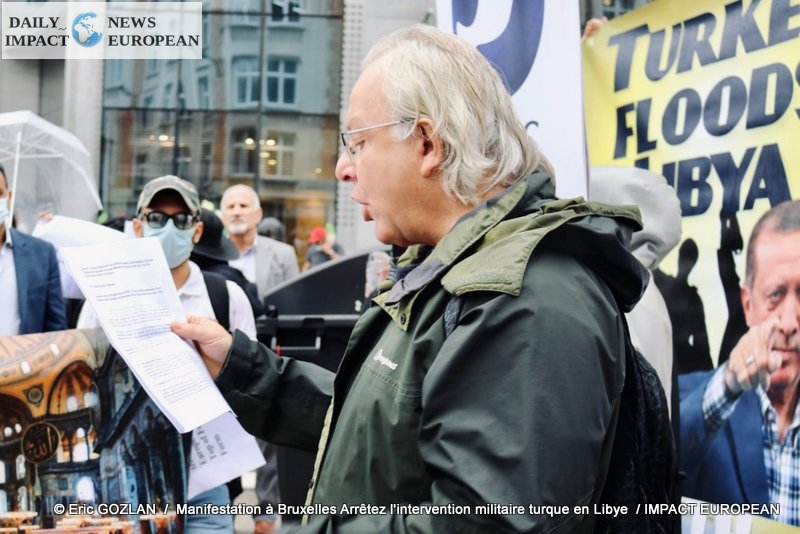
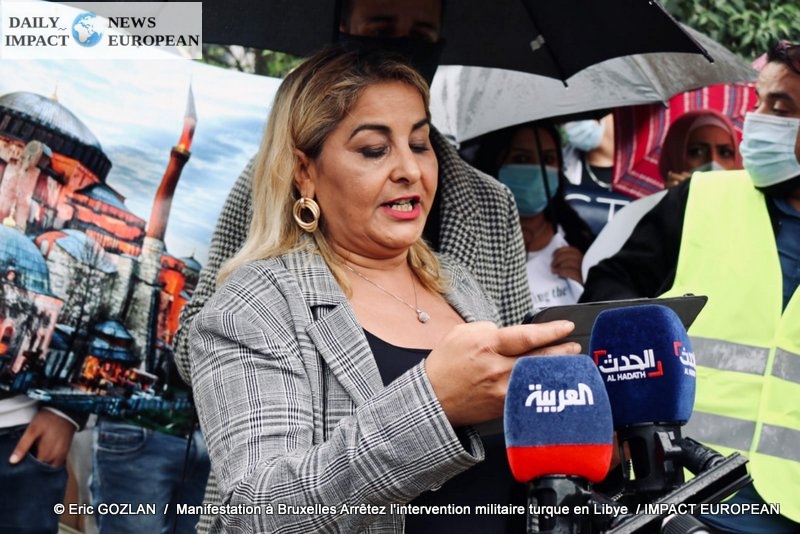
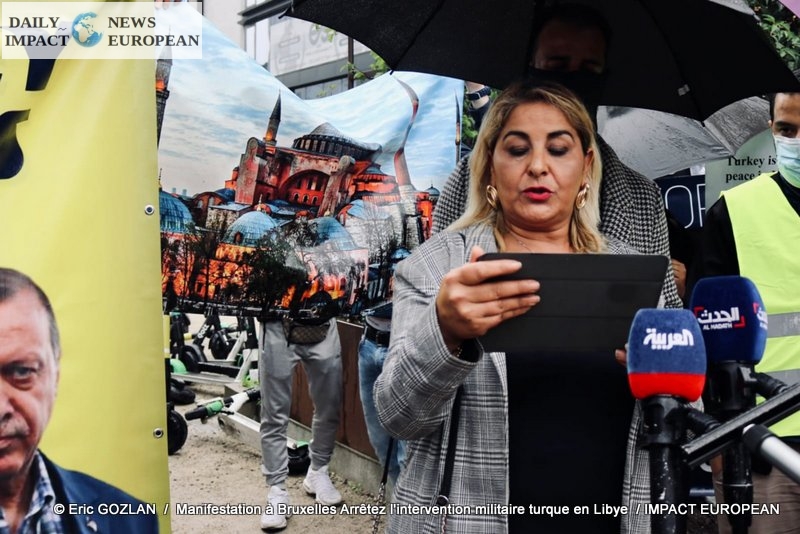
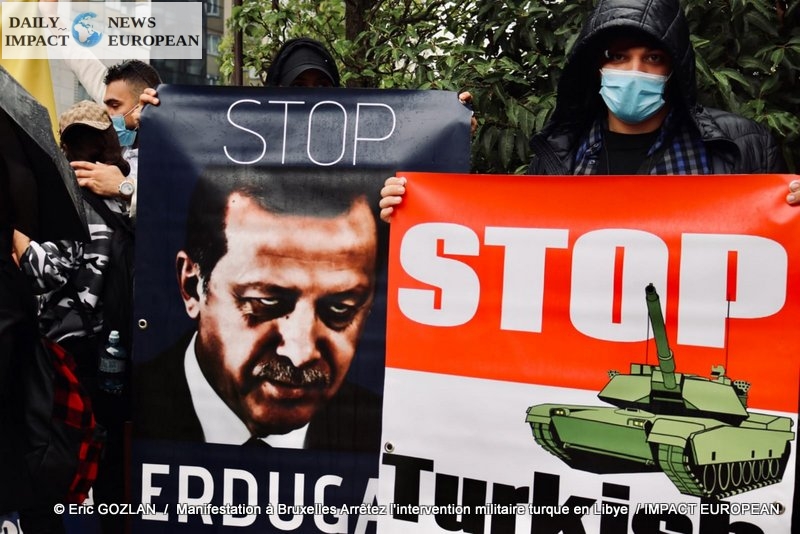
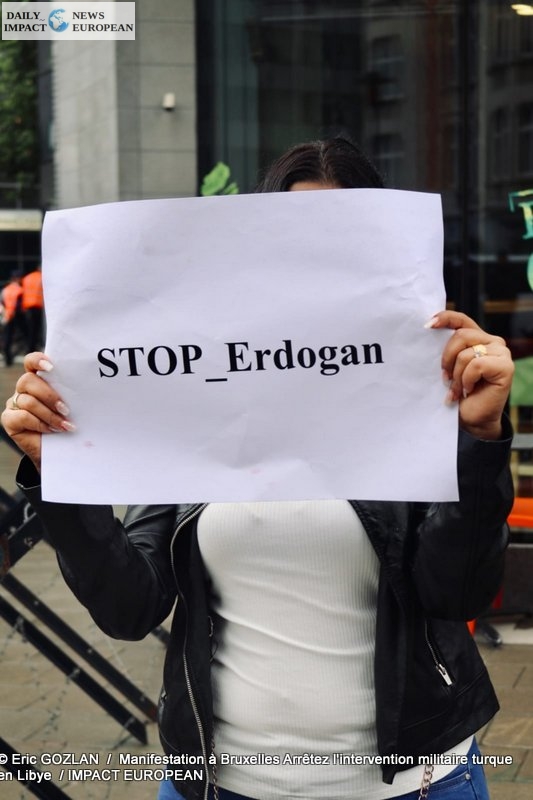
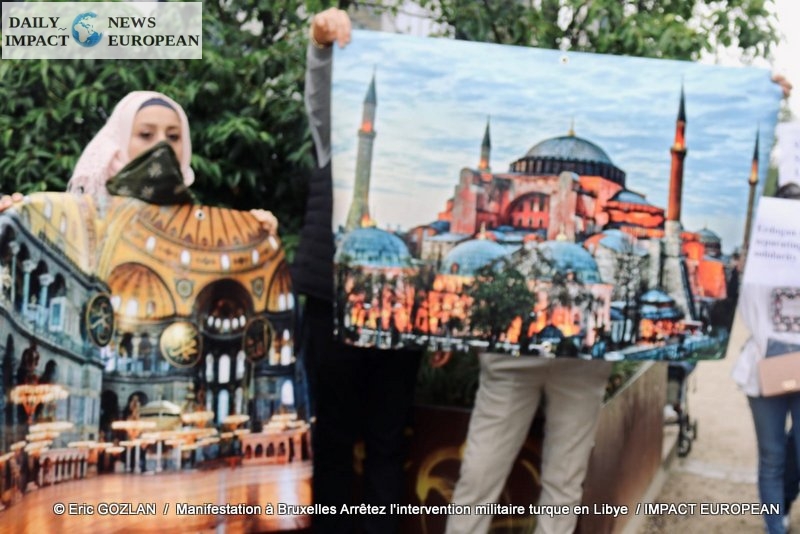
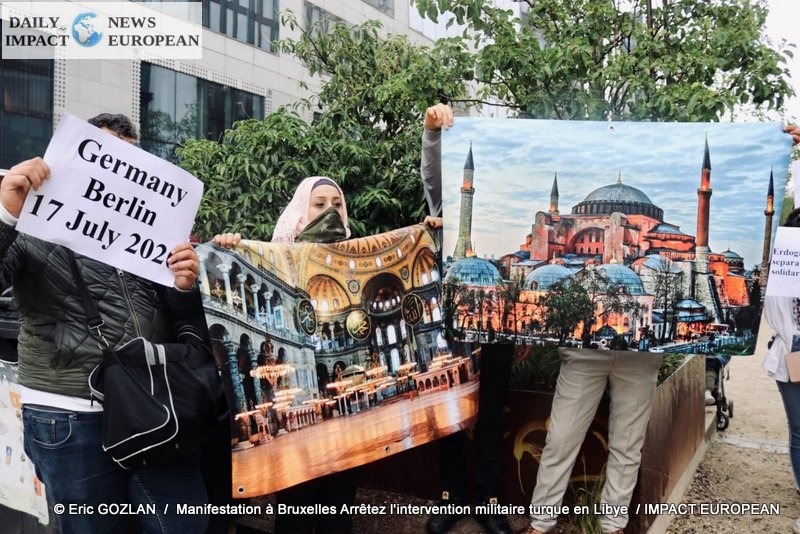
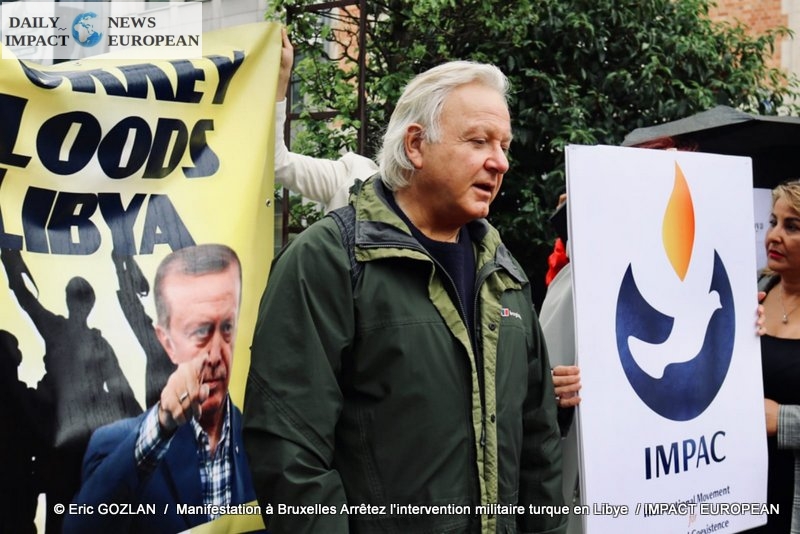
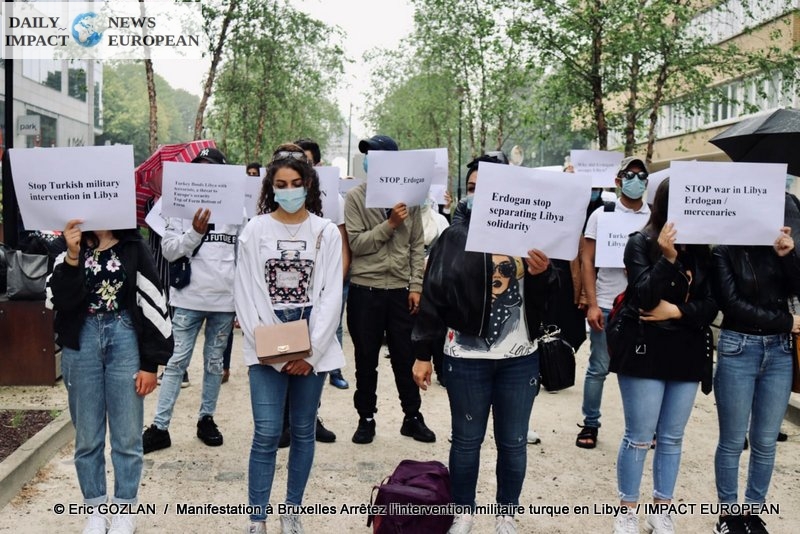
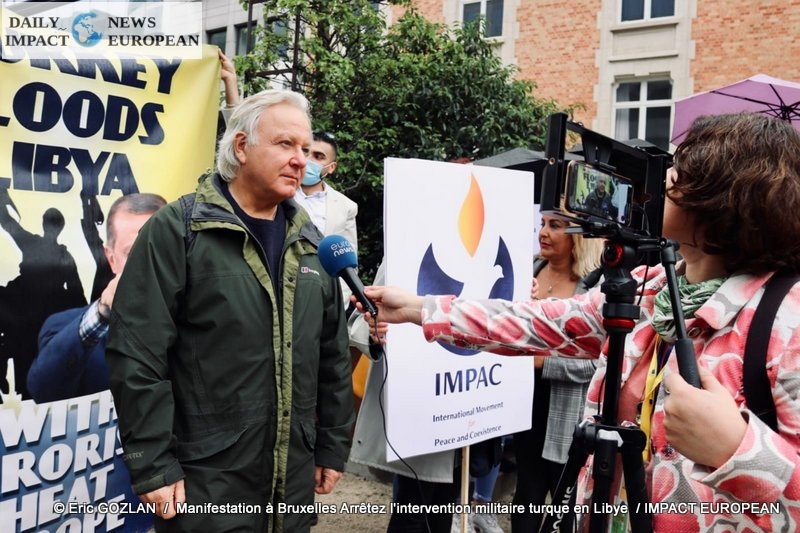
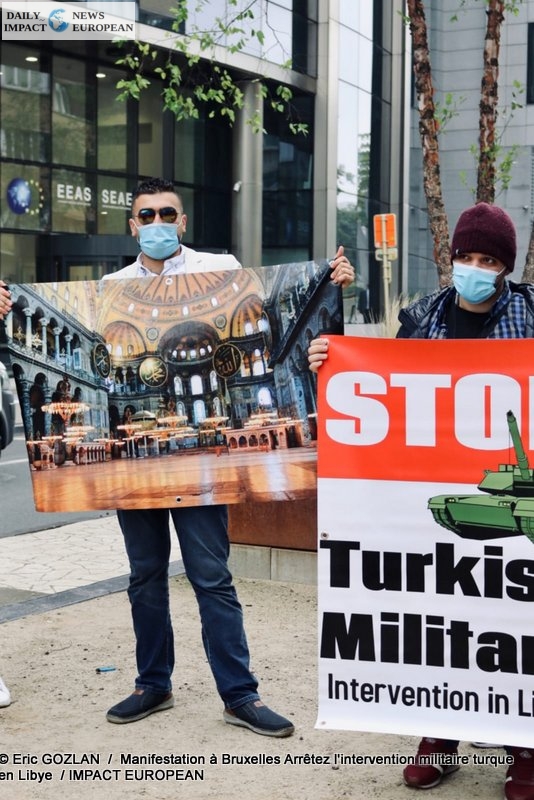
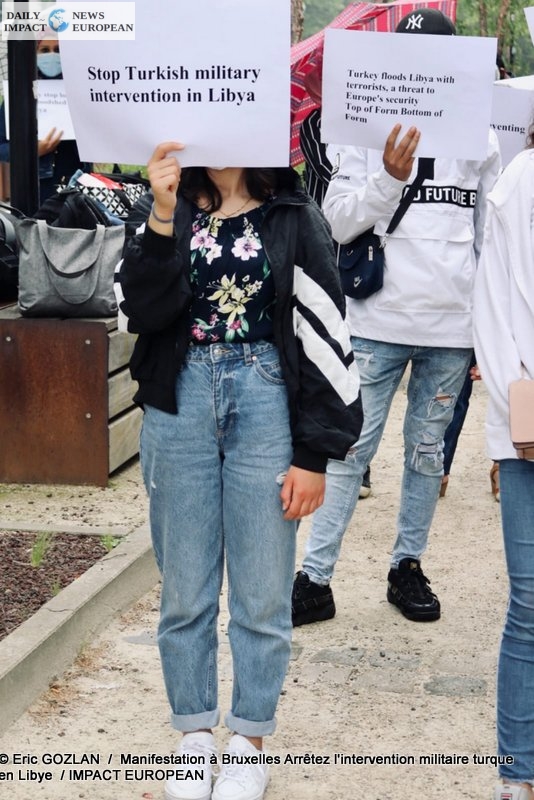
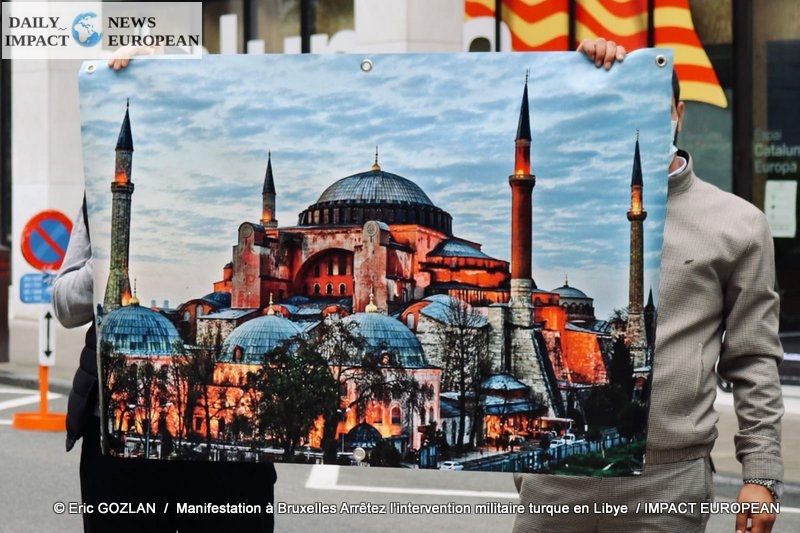
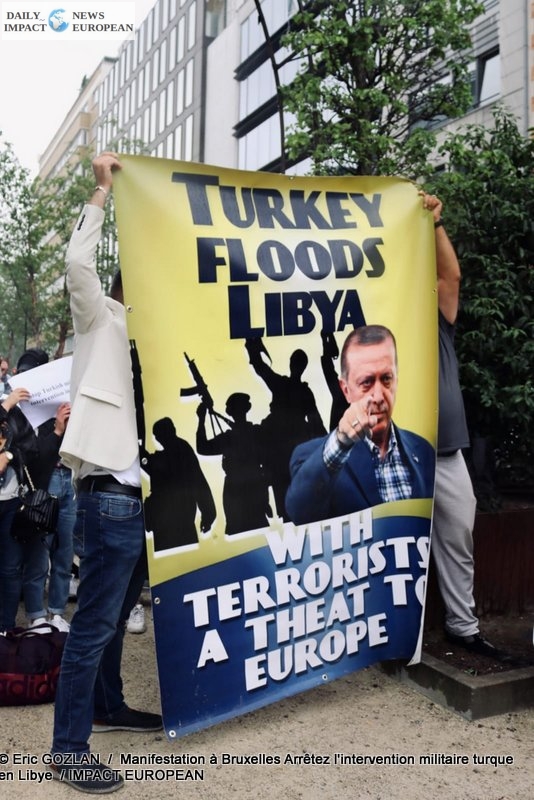
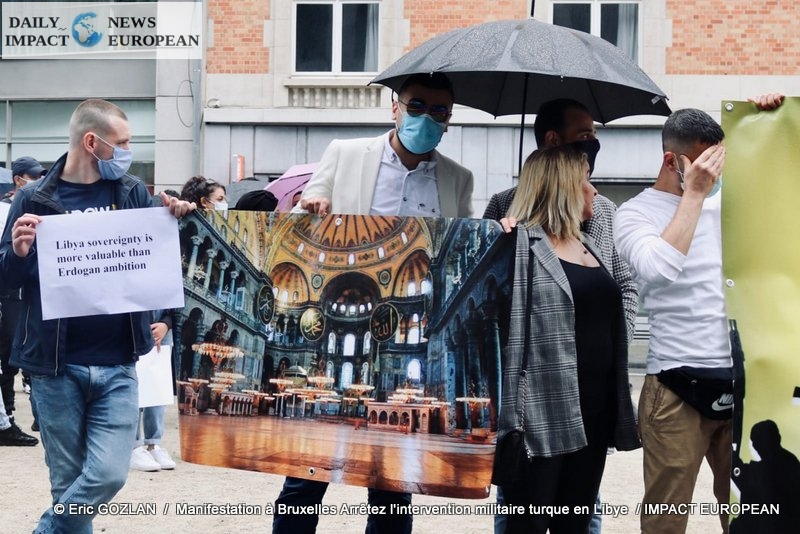
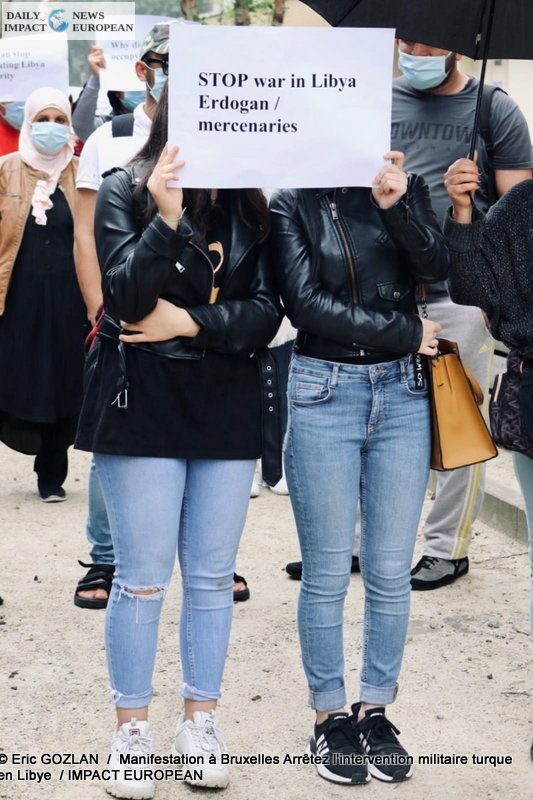
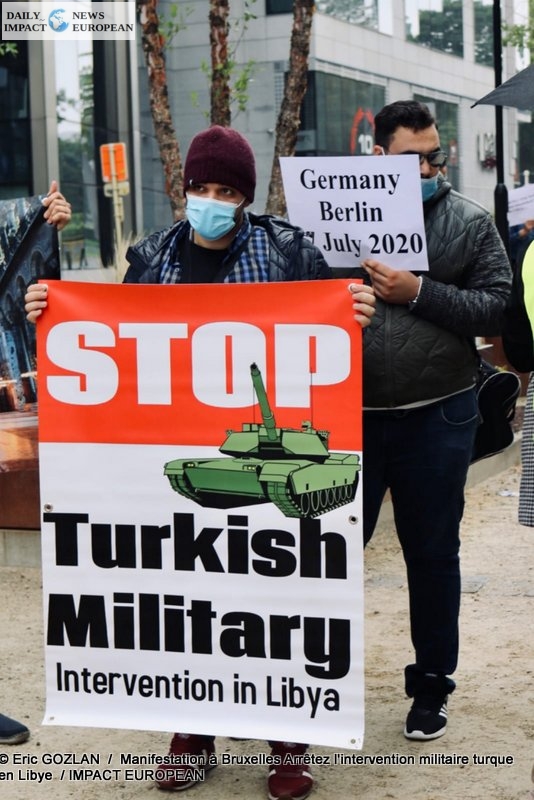
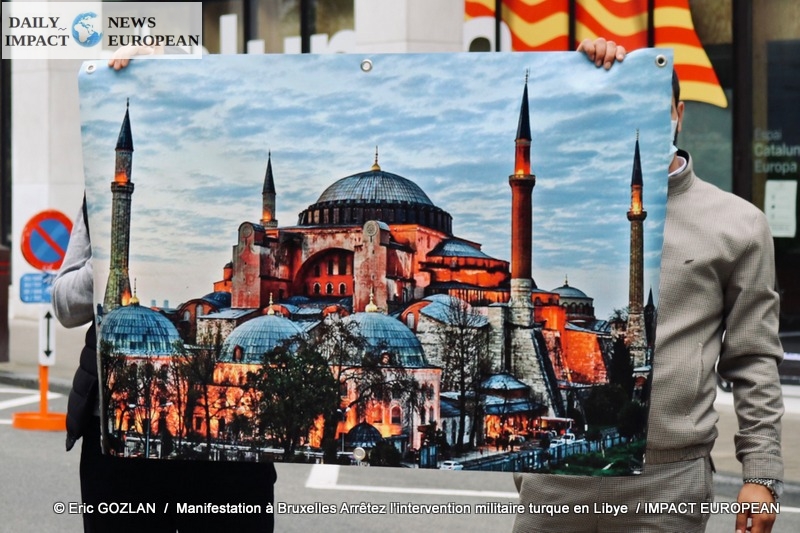
More Stories
Georges Fenech, a Symbol of Renewed Youth, Finds Love Again and Gets Married
United Arab Emirates and Artificial Intelligence: Global Leadership and Strategic Partnerships with France
Premiere of « Gourou » at Pathé